Choosing Your Digital Stage: Udemy, Udacity, Pluralsight, Skillshare, Coursera, edX, or LinkedIn Learning?

Exploring the Titans of Course Marketplaces

In today's digital age, anyone anywhere can tap into vast oceans of knowledge with a laptop and an internet connection.
But just as crucial as the learners are the educators, the brave souls who step up to share their expertise. For these modern educators, the decision isn't just about what to teach and where to teach.
With just a few clicks and a plethora of platforms out there, it's akin to choosing the right stage for your grand performance.
The stage you choose for the best online course platform determines the audience you attract and how you engage, earn, and expand your reach. Among the sea of options, a few platforms rise as titans in online education: Udemy, Udacity, Pluralsight, Skillshare, Coursera, edX, and LinkedIn Learning.
Whether you're a budding educator seeking to carve your niche or a learner wondering where to invest your time, exploring these powerhouses will shed light on their unique characteristics. By the end, you'll be better equipped to navigate the digital learning landscape, ensuring your endeavors, be it teaching or learning, find the right home.
Udemy: The Global Classroom to Sell Online Courses
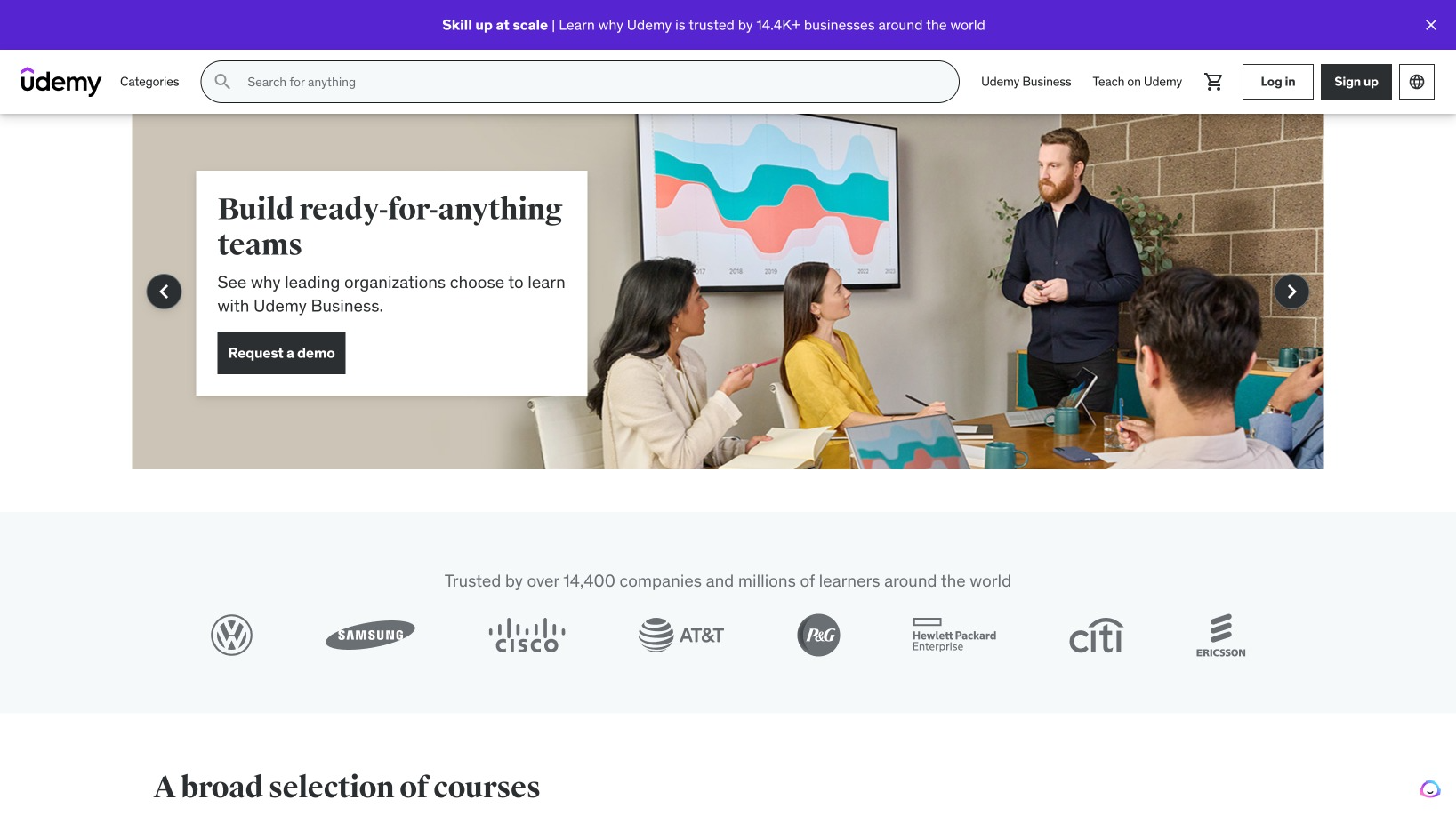
Imagine a bustling digital marketplace humming with diverse topics ranging from the basics of bread baking to advanced neural networks.
That's Udemy for you - a platform where over 50 million students have connected with 57,000 instructors teaching in over 65 languages. It's vast, varied, and very much a global community.
Overview: Udemy is like the crossroads of the online learning world. It invites and welcomes instructors from various backgrounds to create courses and sell courses on almost any subject imaginable.
Think of it as an open market where the quality and success of your online course software are driven by user ratings, reviews, and your promotional and marketing efforts.
Strengths
Diverse Audience: With its massive user base, Udemy offers instructors the chance to reach students from all around the globe. Whether your course topic is niche or broad, there's likely an audience waiting for you.
User-Friendly Interface: For instructors dipping their toes into the online teaching realm, Udemy's platform is intuitive, making the whole online training platform course creation process relatively pain-free.
Regular Promotions: Udemy often hosts sales, boosting course enrollments. This means that even if your course is priced higher, it might get picked up during a sale, increasing your visibility.
Considerations
High Competition: Such a vast platform naturally brings competition. Standing out requires not just quality content but also effective marketing strategies.
Discount Culture: While promotions can boost sales, they also mean that courses are often bought at heavily discounted prices. This could affect perceived course value and your revenue.
Platform Fees: Udemy takes a cut from course sales, which varies depending on who brought the student to the course platform, (the instructor, Udemy, or an affiliate).
Best for: Instructors who have a diverse range of topics and are looking to tap into a vast global audience. If you're seeking a platform to create unlimited courses that requires minimal upfront financial investment and offers a user-friendly interface, Udemy could be your stage. However, be prepared to dive into marketing and stay patient as you build your student base and reputation.
Udacity: The Tech Specialist Online Course Platform
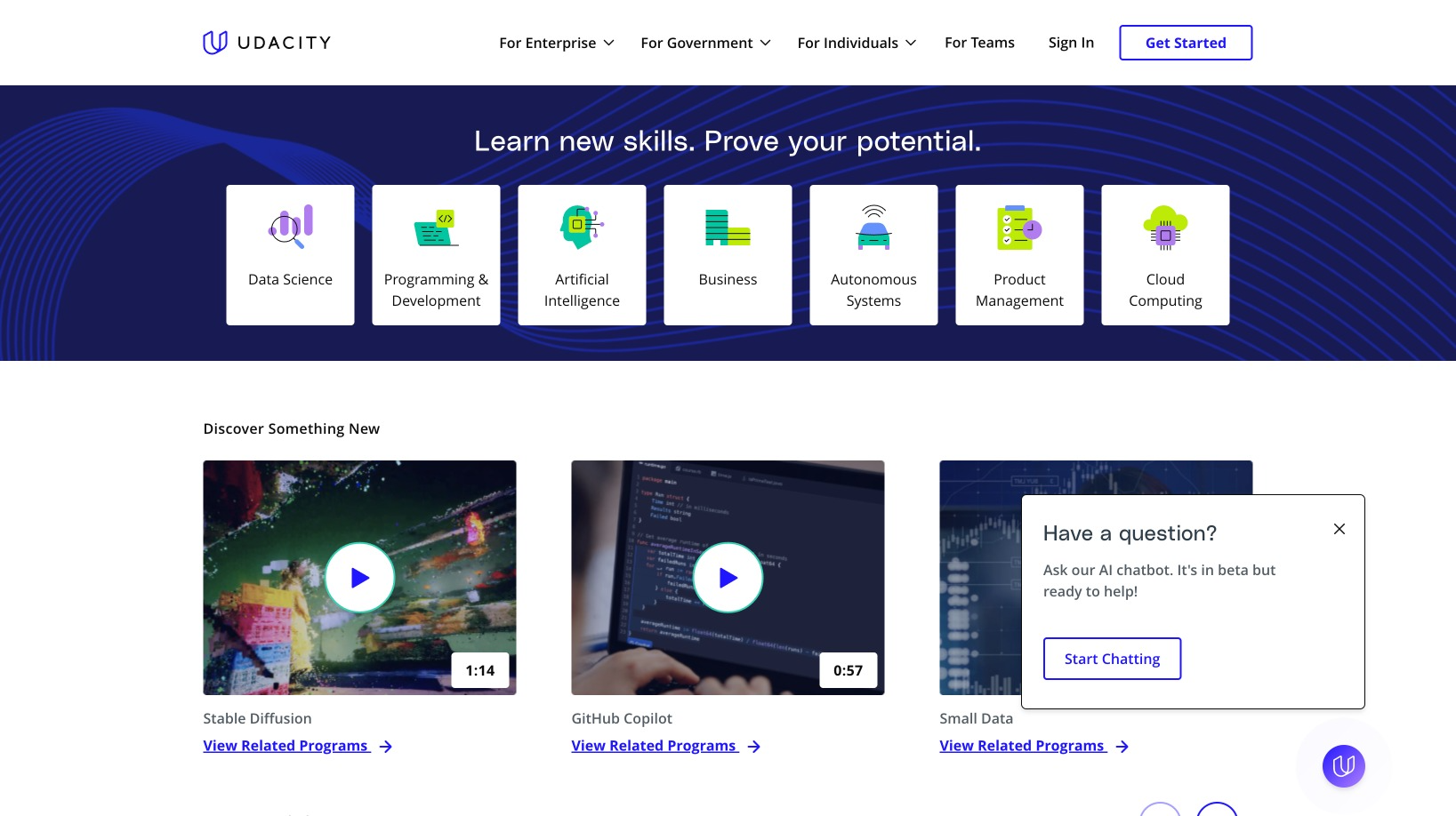
In the vast world of online learning, some platforms become the go-to experts in a niche area. Udacity took this approach, digging deep into the realms of technology, data science, and the jobs of tomorrow.
Overview: Stepping into Udacity feels like walking into a futuristic lab. Their focus is on the most cutting-edge tech fields, offering what they term as "Nanodegrees". These aren't just courses; they are comprehensive learning experiences often built in partnership with top tech companies like Google, AWS, and IBM.
Strengths
Industry-Relevant Curriculum: One of Udacity's standout features is its up-to-date curriculum, often co-created with leading tech giants. This ensures that what you're teaching or learning is immediately relevant in the job market.
Mentor Support: Udacity provides its students with mentors, enhancing the learning experience. As an instructor, this means you're not alone; there's a team backing your course.
Project-Based Learning: Courses often culminate in real-world projects, enabling students to apply what they've learned. This hands-on approach can be a unique selling point for instructors.
Considerations
High Standards: Given its industry partnerships and emphasis on job-ready skills, Udacity has high standards for course content. This can be a challenge but also a mark of quality.
Niche Focus: While Udacity's tech-centric approach is its strength, it also means it's not the platform for topics outside of this realm.
Pricing Model: Udacity's Nanodegrees aren't cheap, which could affect enrollment numbers. However, they do sometimes offer financial support or scholarships to students.
Best for: Tech professionals, industry experts, and educators looking to offer deep, job-relevant technical skills here. If you're passionate about creating comprehensive learning experiences that prepare students for the tech jobs of tomorrow and have the expertise to match, Udacity could be your ideal platform.
Pluralsight: The IT Pro's Paradise
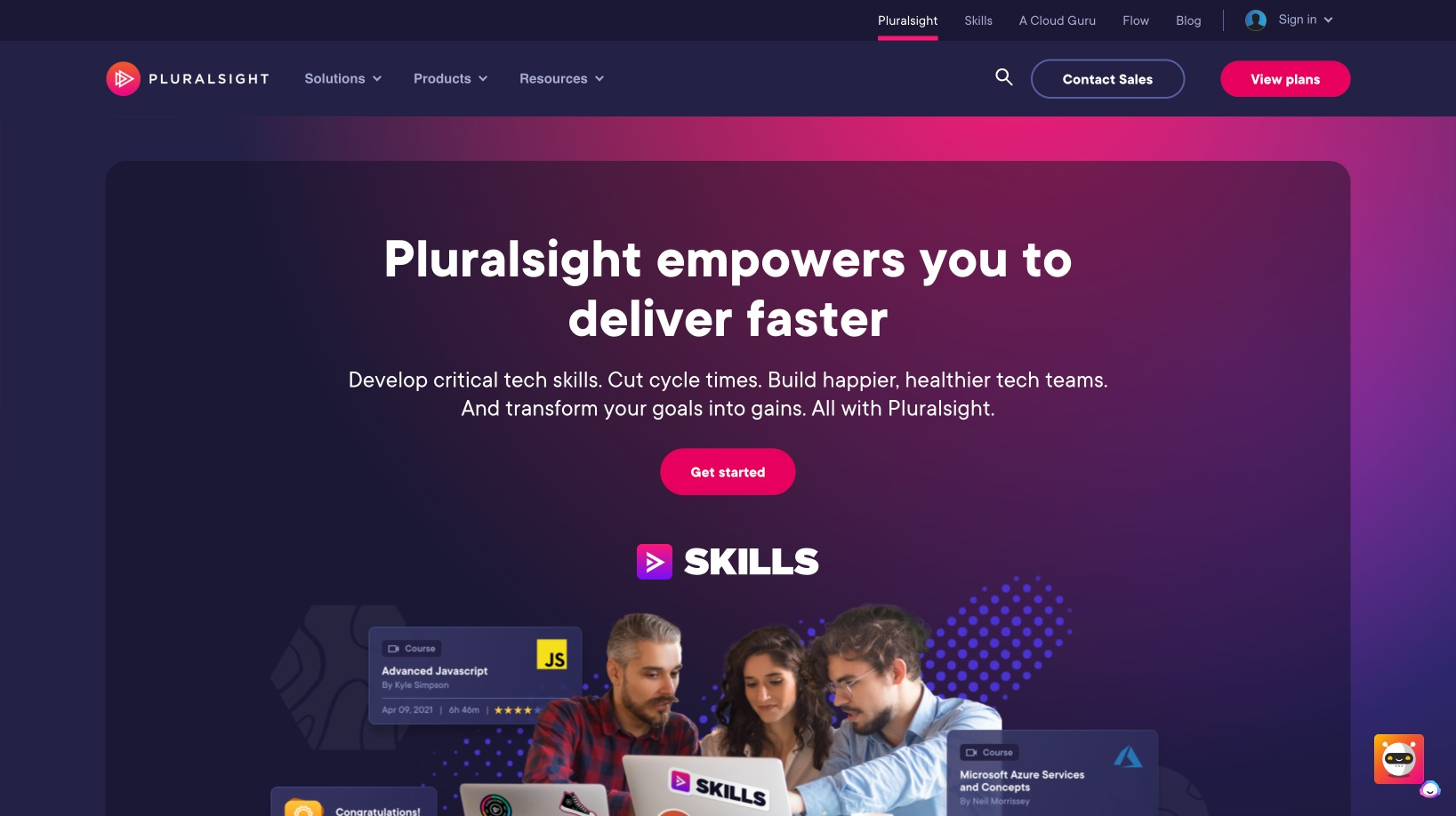
Navigating the landscape of online education, you'll find hubs for creative artists, tech innovators, and then there’s Pluralsight—a haven for the IT professionals.
It's where software development, IT ops, and cybersecurity converge in a dance of bytes and bits.
Overview: Imagine a library, but instead of books, it’s filled with courses—thousands of them—focused on helping IT professionals sharpen their skills, remain relevant, and stay ahead of the curve.
That’s Pluralsight. It's a platform that has rooted itself deeply in the tech soil, attracting a specific audience hungry for high-caliber IT content.
Strengths
Depth and Breadth: Pluralsight's content library is vast, but it doesn't trade depth for breadth. Courses are expert-authored, ensuring quality and real-world relevance.
Skill Assessments: This unique feature allows learners to gauge their proficiency in various topics. As an instructor, it means you can target your content to specific skill gaps in the industry.
Learning Paths: Beyond singular courses, Pluralsight offers guided paths, helping learners chart their journey through interconnected topics. It’s an opportunity for instructors to design comprehensive educational experiences.
Considerations
Focused Audience: Pluralsight’s audience is niche. While this ensures that your content reaches the right eyes, it also means your courses need to align closely with IT professionals' needs and aspirations.
Content Quality Expectation: The platform boasts expert-authored courses, setting a high bar for content quality and depth.
Subscription Model: Unlike platforms where learners pay per course, Pluralsight works on a subscription model. Instructors are paid based on the popularity and consumption of their content, not direct sales.
Best for: Those deeply entrenched in the IT world. If you're an expert in software, IT ops, cybersecurity, or related fields, and you're eager to educate the next wave of professionals, Pluralsight beckons. The platform rewards in-depth, sophisticated content that addresses the evolving challenges and innovations in the IT realm.
Skillshare: Creativity Unleashed
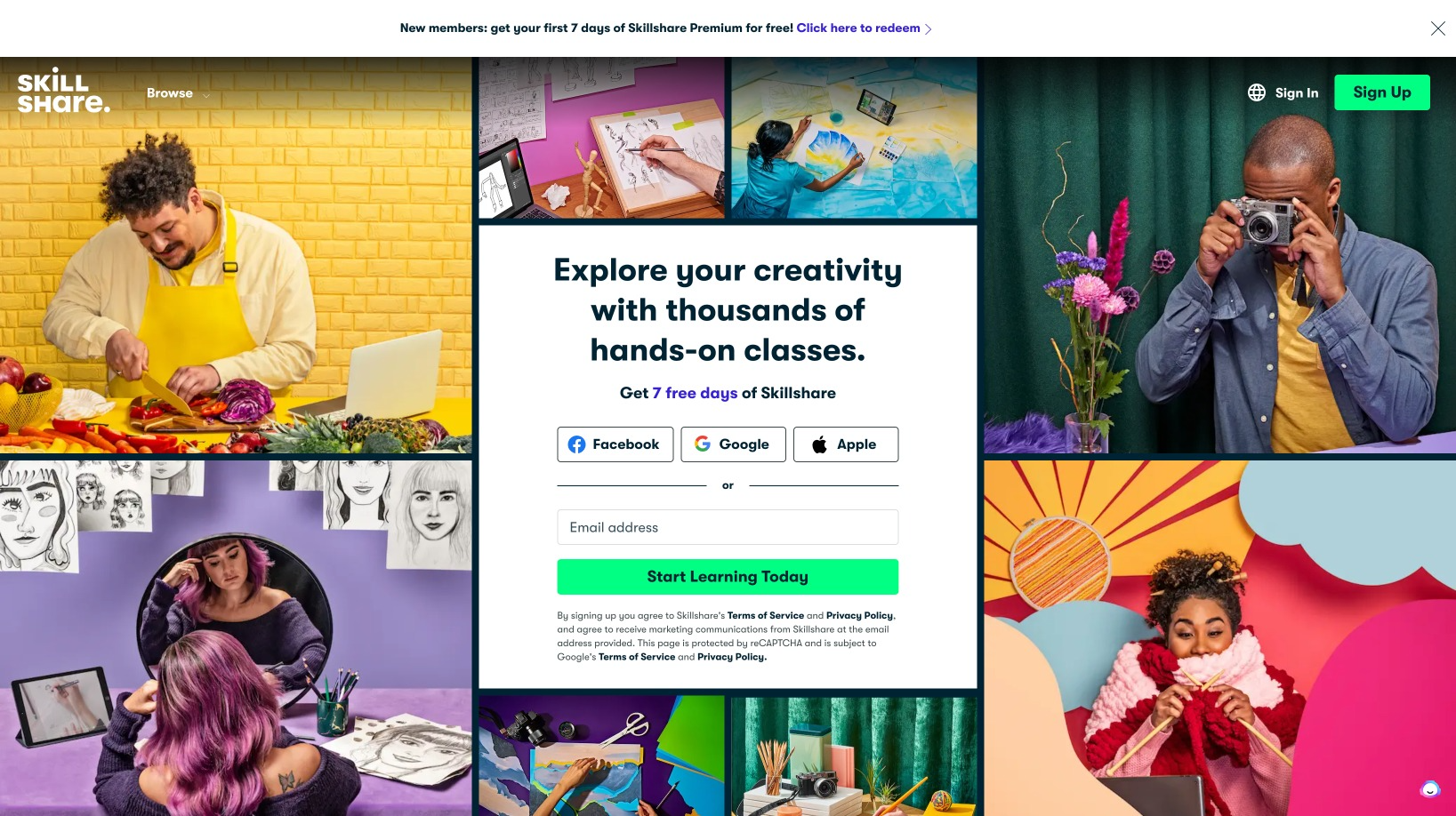
If you picture the best online course platforms and learning platforms as cities, Skillshare would be the colorful arts district, where every corner and cafe is filled with creators, designers, and storytellers sharing their crafts and tales. It's less about rigid curriculums and more about diving into creative pools.
Overview: Skillshare is like a vibrant digital workshop space, brimming with courses on everything from watercolor painting and graphic design to creative writing and photography. It promotes learning by doing, inviting its community to engage, share projects, and inspire each other.
Strengths
Community Engagement: More than just a platform for both selling courses online, and creating online courses, Skillshare thrives on its community. As an instructor, you're not just teaching; you're sparking discussions, encouraging projects, and fostering a creative community.
Short and Sweet: Unlike online course platforms emphasizing long, in-depth courses, Skillshare’s bite-sized class structure allows quick skills acquisition. This means you can create concise, engaging content without months of preparation.
Passive Income Potential: With Skillshare's subscription model, instructors earn royalties based on the number of minutes watched in their classes. With evergreen content, this can lead to sustained passive income.
Considerations
Competition Through Creativity: Given its focus on creative subjects, there's ample competition. Standing out requires a mix of unique content, engaging teaching style, and community engagement.
Subscription Revenue Model: Your earnings are tied to watch time rather than course purchases. This can be both an advantage and a challenge, as consistent student engagement becomes key.
Promotion Within Platform: While Skillshare does highlight popular and top-performing classes, new instructors might need to do some legwork to promote their courses initially.
Best for: Creative souls. If you're a designer, artist, writer, filmmaker, or any kind of creator looking to share your passion and techniques with a like-minded community, Skillshare is your canvas. It's a space that values both teaching and community engagement, so be ready to immerse yourself in both.
Coursera: The University Experience, Online
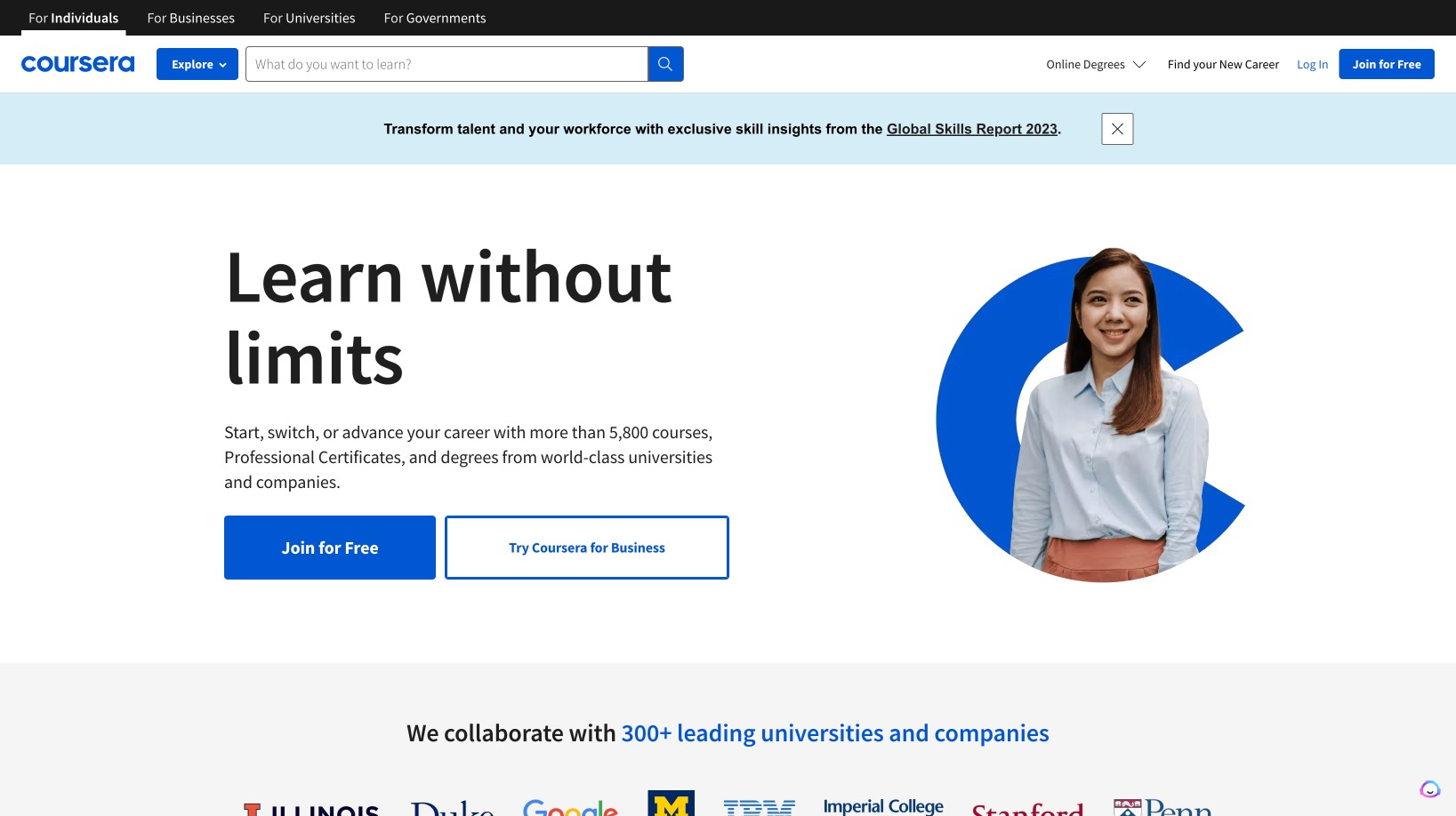
Founded in 2012 by Stanford professors Andrew Ng and Daphne Koller, Coursera aimed to bring the university experience online. It quickly rose to prominence by offering courses, specializations, and even degrees in partnership with top universities worldwide. Today, it's one of the most recognized names in the online education sector.
Strengths
University-Backed Courses: One of Coursera's standout features is its partnership with top-tier universities. When students sign up for a course, they know they're getting content backed by institutions like Stanford, Yale, or Imperial College London.
Broad Course Categories: From humanities and social sciences to computer science and business, Coursera boasts a diverse range of subjects. This diversity of course curriculum ensures that there's something for everyone, whether they're looking for career advancement or personal enrichment.
Flexible Learning: Many Coursera courses offer self-paced learning, allowing students to progress at their own speed. This feature is particularly beneficial for working professionals or those juggling other commitments.
Considerations for Instructors
Monetization Model: Most Coursera courses are free to audit, meaning students can access lectures and some content without paying. However, students need to pay to get graded assignments, a certificate of completion, or access to interactive elements. As an instructor, your revenue would typically come from these paid enrollments.
Specializations & Degrees: Beyond individual courses, Coursera offers Specializations (a series of related courses) and online degrees. These are higher-priced offerings, ensuring better revenue potential for instructors involved in selling online courses.
Revenue Sharing: Coursera's model often involves sharing revenue with both the instructor and the partnering institution. Exact percentages can vary based on agreements and the specific nature of the course.
Collaborative Approach: If you're an independent instructor, it might be a bit challenging to get a standalone course on Coursera without institutional backing. However, Coursera does occasionally collaborate with industry experts or professionals who sell online courses, especially for specialized content or projects.
Rigorous Quality Standards: Given its university-centric model, Coursera maintains high standards for course content. This ensures credibility but also means instructors need to invest significantly in course design, content quality, and presentation.
Engaged Student Base: With its reputation, Coursera attracts a global audience of dedicated learners. Instructors can expect in-depth interactions, detailed feedback, and a higher level of engagement compared to some other platforms.
edX: A Vision of Global Access to Top-Quality Education
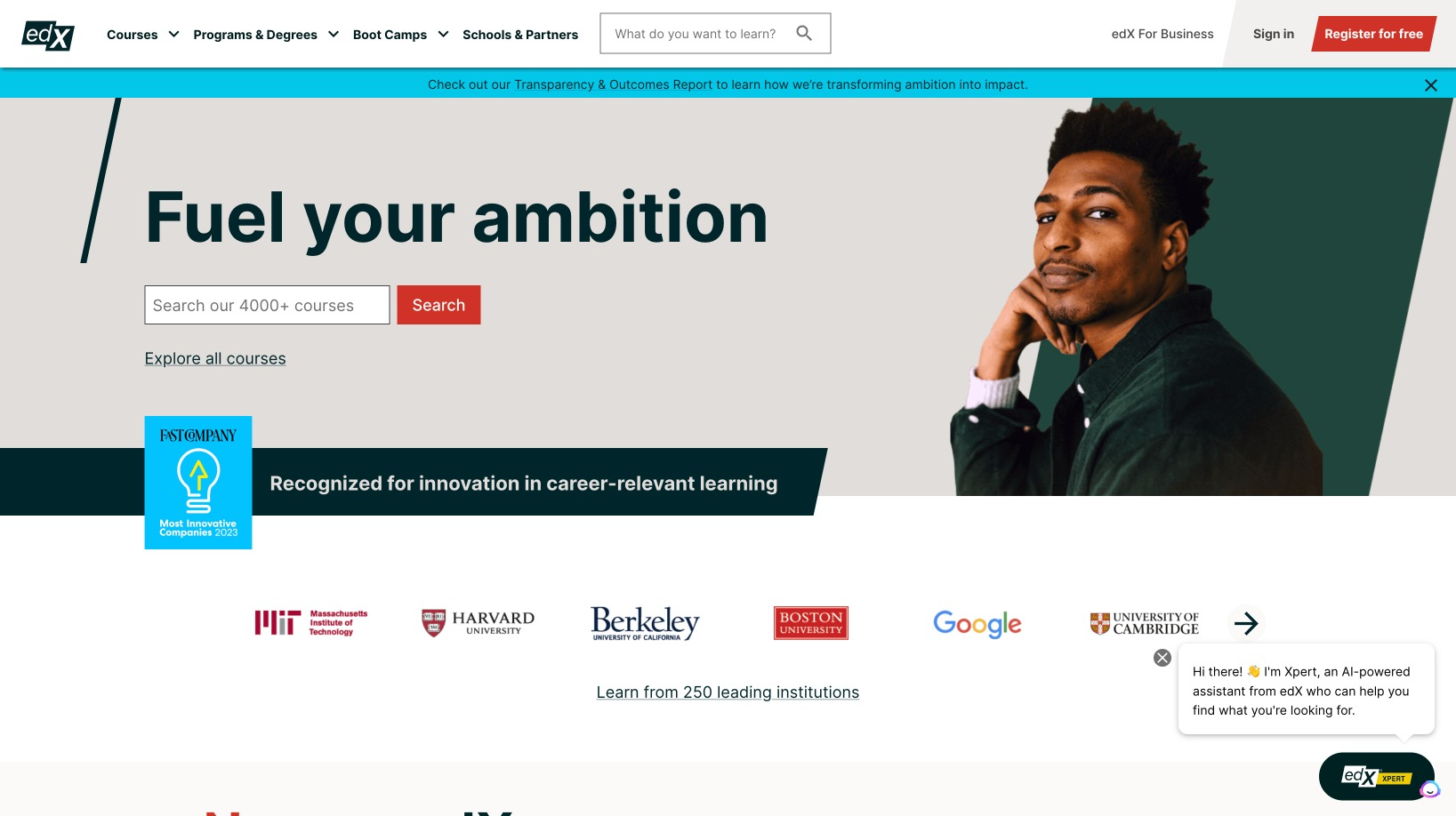
Established by two giants in the world of academia, Harvard University and the Massachusetts Institute of Technology (MIT), edX burst onto the scene in 2012. Its mission? To democratize access to high-quality education for everyone, everywhere. With a formidable lineup of institutional partners, edX offers courses ranging from computer science to humanities, attracting learners from all around the globe.
Strengths
Elite Institutional Partnerships: With collaborators including Harvard, MIT, UC Berkeley, and more, edX courses come with a seal of academic excellence. Learners have the chance to receive an education comparable to on-campus offerings, but from the comfort of their homes.
MicroMasters and Professional Certificate Programs: Beyond individual courses, edX introduced the MicroMasters program—a series of graduate-level courses that can even count as credit towards a full Master's program. These cohort courses offer students a pathway to an accelerated, flexible, and cheaper Master's degree.
Open edX Platform: Embracing the open-source ethos, edX made its learning platform available as "Open edX." This has been adopted by numerous institutions to host their online courses, expanding the platform's reach even further.
Considerations for Instructors
Monetization Model: Like Coursera, many edX courses can be audited for free. However, for access to graded assignments, certificates, and other interactive elements, students must opt for the verified track, which comes at a cost.
MicroMasters and Degrees: These advanced programs are priced higher than individual courses. As an instructor, being involved in crafting such a curriculum could lead to substantial revenue potential.
Revenue Sharing: The revenue distribution on edX is typically split between the platform, the instructor, and the partnering institution. The exact breakdown varies based on specific agreements and the nature of the course.
Prestige and Quality: Being on edX means aligning with a brand that is synonymous with academic rigor. As an instructor, this offers a prestige boost but also requires maintaining the high standards set by the platform.
Partnership-Driven: It's worth noting that edX primarily works with institutions. Unless they're recognized experts in their field or bring a unique proposition, individual instructors might find it more challenging to launch a standalone online course business here.
Global Learner Demographics: edX's user base is vast and varied, ranging from professionals looking to upskill to students seeking college credits. This diversity demands a versatile approach to the online course creation platform, ensuring content appeals to a wide audience.
LinkedIn Learning: The Professional's Playground
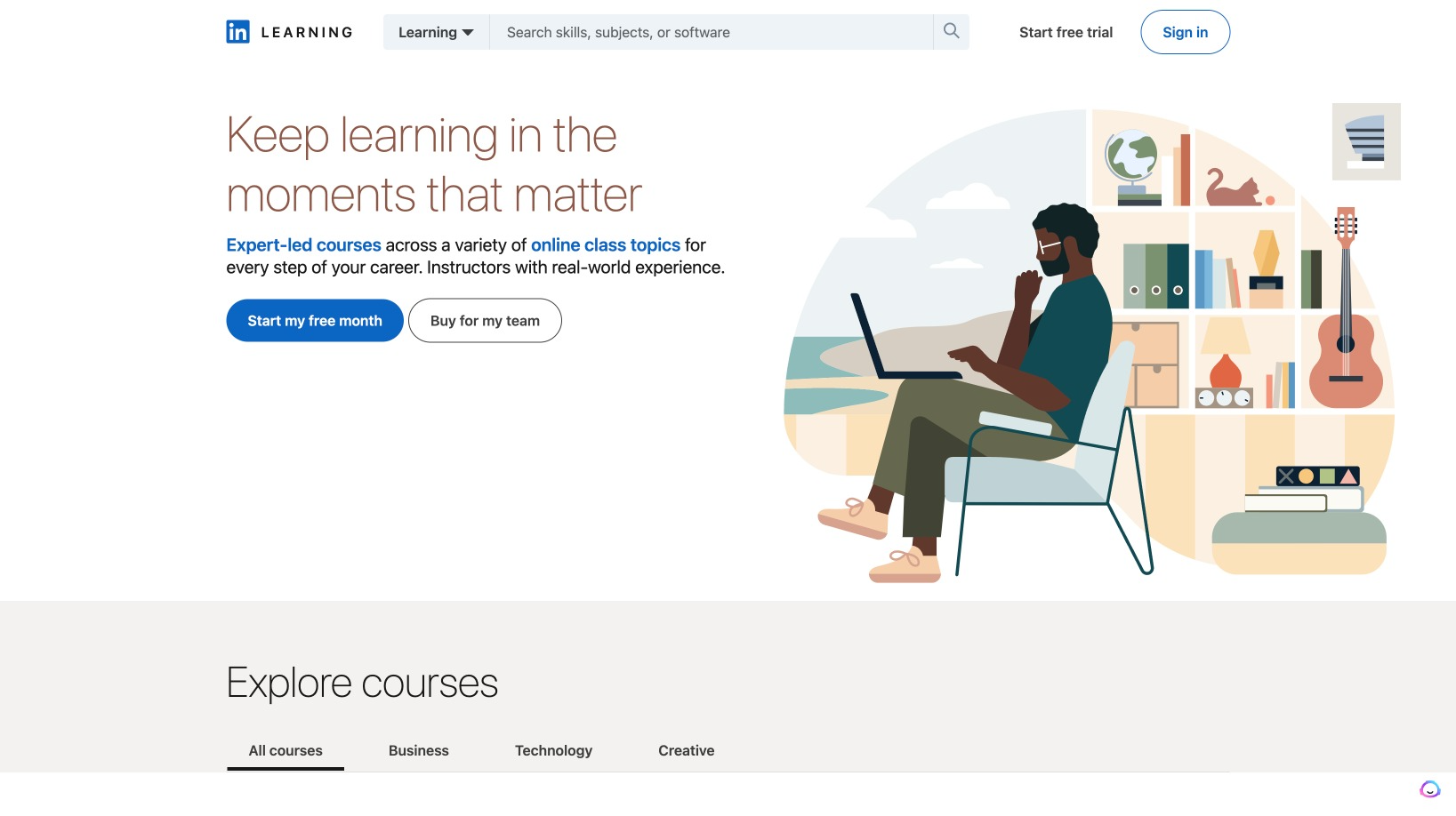
When you think of LinkedIn, networking might be the first thing that springs to mind. Yet, this professional hub has expanded its wings into the realm of education, curating a platform where career growth and skills development sit at the forefront.
Overview: LinkedIn Learning is an extension of the professional branding giant, offering courses tailored for business professionals. Its library spans many topics, from leadership, marketing tools, and project management to software tools and creative skills. Each course is integrated seamlessly with the LinkedIn ecosystem, making it a one-stop shop for professionals keen on continuous growth.
Strengths
Reputation and Professional Reach: Being part of LinkedIn, this platform inherently boasts a robust reputation. Courses can be showcased on LinkedIn profiles, offering instructors and learners a professional branding advantage.
Quality Assurance: LinkedIn Learning is selective, ensuring high-quality content. With its in-house production team, instructors are often guided through the course creation process, ensuring polished final products.
Broad yet Professional Audience: The platform caters to a broad range of topics, yet it's all angled toward professionals. This offers a unique balance, allowing both niche and broad subjects to find their audience.
Considerations for Instructors
Selective Course Acceptance: Not everyone can simply start teaching. Courses undergo a review process, and LinkedIn often approaches industry leaders or experts directly.
Collaborative Production Process: While this ensures high-quality courses, it might also mean instructors have to work more closely with LinkedIn's team, aligning with their standards and processes.
Unique Revenue Model: Instead of a direct sales or subscription model based solely on course views, LinkedIn Learning has a more complex compensation model based on course popularity, user engagement, and other factors.
Best for: Industry leaders, seasoned professionals, and educators with a strong track record. LinkedIn Learning could be the platform for you if you're keen on reaching a professional audience and aligning your educational brand with a platform that exudes expertise. Given its selective nature, it's especially suited for those with significant expertise or a unique perspective on professional development topics.
Diversification: Why Not All Eggs Belong in One Basket

In the world of investments, there's a mantra: "Don't put all your eggs in one basket." The same wisdom can be applied to online course creation. With many platforms available, diversifying where you offer your online courses can be both a strategic and prudent move.
Benefits of Diversification
Reach Different Audiences: Each platform boasts its existing audience, own website, and unique user demographic. By diversifying, you're casting a wider net, ensuring your content reaches varied audiences and demographics.
Stability in Revenue: Just as stock market investors spread their capital to mitigate risks, course creators can benefit from a more stable income. If one platform faces challenges or changes its policies, your revenue doesn't take a huge hit.
Feedback and Adaptation: Different platforms offer different feedback mechanisms. Diversifying can provide a richer tapestry of feedback, helping you refine and adapt your content more effectively.
Brand Visibility: The more platforms you're on, the more visible your personal or business brand becomes. It can lead to increased recognition, credibility, and other opportunities beyond course sales.
Considerations
Content Adaptation: Not all content fits uniformly across platforms. You might need to tweak course structures, durations, or even content focus to suit the nuances of each platform.
Time Investment: Managing courses across multiple platforms requires time. From updating or creating courses, handling feedback, or navigating different payout structures, it's a more hands-on approach.
Consistency: While diversification is beneficial, maintaining a consistent brand voice, course quality, and engagement level across platforms is crucial.
Diversifying Strategically
Start Small: Don't rush into every platform at once. Start with one, understand its dynamics, then expand methodically.
Leverage Unique Platform Features: Each platform offers unique features. For instance, Skillshare’s project-based approach or Udacity's mentor system. When diversifying, see how you can best leverage these unique offerings.
Track and Analyze: Use analytics to understand where you're getting the best engagement, feedback, and revenue from digital products. This can help you decide where to double down or pull back.
In the ever-evolving world of online education, diversification isn't just a strategy; it's a safety net, an opportunity multiplier, and a brand builder. While there's no one-size-fits-all approach, being present across multiple platforms can open doors to a broader audience, varied feedback, and multiple streams of income. But, as with all strategies, it requires thought, consistency, and adaptability.
Conclusion: Navigating the Course Marketplace Maze

Choosing the right platform for your online course is akin to selecting the right soil for a plant. Each platform has its unique ecosystem, audience, and strengths. Your choice right online course platform should hinge not just on the subject matter you wish to teach, but also on the type of community you want to engage with, the format that best suits your teaching style, and the business model you're most comfortable with.
Udemy is the bustling global online course marketplace, great for a vast array of topics and reaching a wide demographic.
Udacity shines for tech-centric, comprehensive courses that align closely with the demands of today's tech job market.
Pluralsight is your IT haven, tailored for professionals seeking depth and breadth in the tech universe.
Skillshare is the artist's workshop, where creativity reigns and community thrives.
Coursera stands out as the ivy-walled institution of the best online course marketplaces in world. With its academic rigor and university partnerships, it's ideal for those looking to offer comprehensive, in-depth courses. Its reputation attracts serious learners, making it a top choice for educators aiming for academic depth and global reach.
edX is the epitome of academic excellence in the online learning space. For instructors aiming to be associated with renowned institutions and deliver in-depth, transformative education, edX is a prime destination. The platform's global reach and commitment to quality promise an enriching experience for both educators and students.
LinkedIn Learning is the corporate boardroom, blending professionalism with education, and is tightly integrated with the world's largest professional network.
As you mull over these options, remember: the best platform is one that resonates with your goals and vision. It's less about the numbers and more about the match. Because when passion meets the right platform, magic ensues. Whether you're looking to inspire, inform, or innovate, there's a digital stage out there waiting for your unique voice. Happy teaching!



